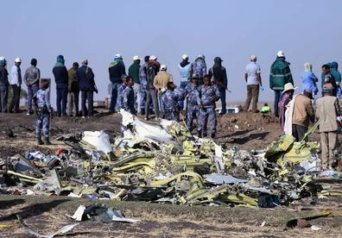- About
- Topics
- Picks
- Audio
- Story
- In-Depth
- Opinion
- News
- Donate
- Signup for our newsletterOur Editors' Best Picks.Send
Read, Debate: Engage.
| located: | Mozambique, South Africa |
|---|---|
| editor: | Bob Koigi |
The devastating tropical Cyclone Idai in Mozambique and neighbouring Malawi and Zimbabwe has so far claimed the lives of more than 600 people and has left 1.85 million more in need of humanitarian assistance. While leaving behind a trail of destruction and despair as the Southern African countries struggle to come to terms with the fury of nature, Idai has brought to light the growing reality of climate change and how ill-prepared the world is in the wake of rising natural calamities.
Aid workers are currently grappling with an unprecedented humanitarian crisis in the region, as an outbreak of diseases beckons. Meanwhile, scientists are raising an alarm over the nexus between the intensity of storms and climate change, arguing that global temperatures and the warming of our oceans are to blame for the heavy cyclones we are constantly experiencing, and which are now happening in places that were never thought to suffer from reduced harvests and global water shortages. The economic burden is devastating.
The UN Office for Disaster Risk Reduction, in its 2018 report on the financial impact of climate-related disasters, noted that between 1998 and 2017, disaster-hit countries reported direct economic losses of $2.9 billion – with climate-related disasters accounting for $2.2 billion of the total loss. These figures largely affect the vulnerable communities who take years to recover from such loses. In the case of Cyclone Idai, farmers who form the bulk of the population in the region were preparing to harvest before the storm after having endured prolonged dry spells.
The unpredictability of the storms and the fact that once they strike they hit numerous countries at once, create obvious challenges but also an opportunity for these countries to share information regularly – especially on forecasting and coordinate disaster management to avert the loss of lives and minimise damages.
To paraphrase Juliette Biao, the UN Environment’s Regional Director for Africa, Cyclone Idai is yet another reminder of the need for more and urgent investment in ecosystem-based disaster risk reduction, and climate change adaptation to reduce the human and financial toll of natural disasters. Sound environmental management, climate change impacts and disaster responses are closely interlinked and require a more systematic and comprehensive approach to disaster risk management.
